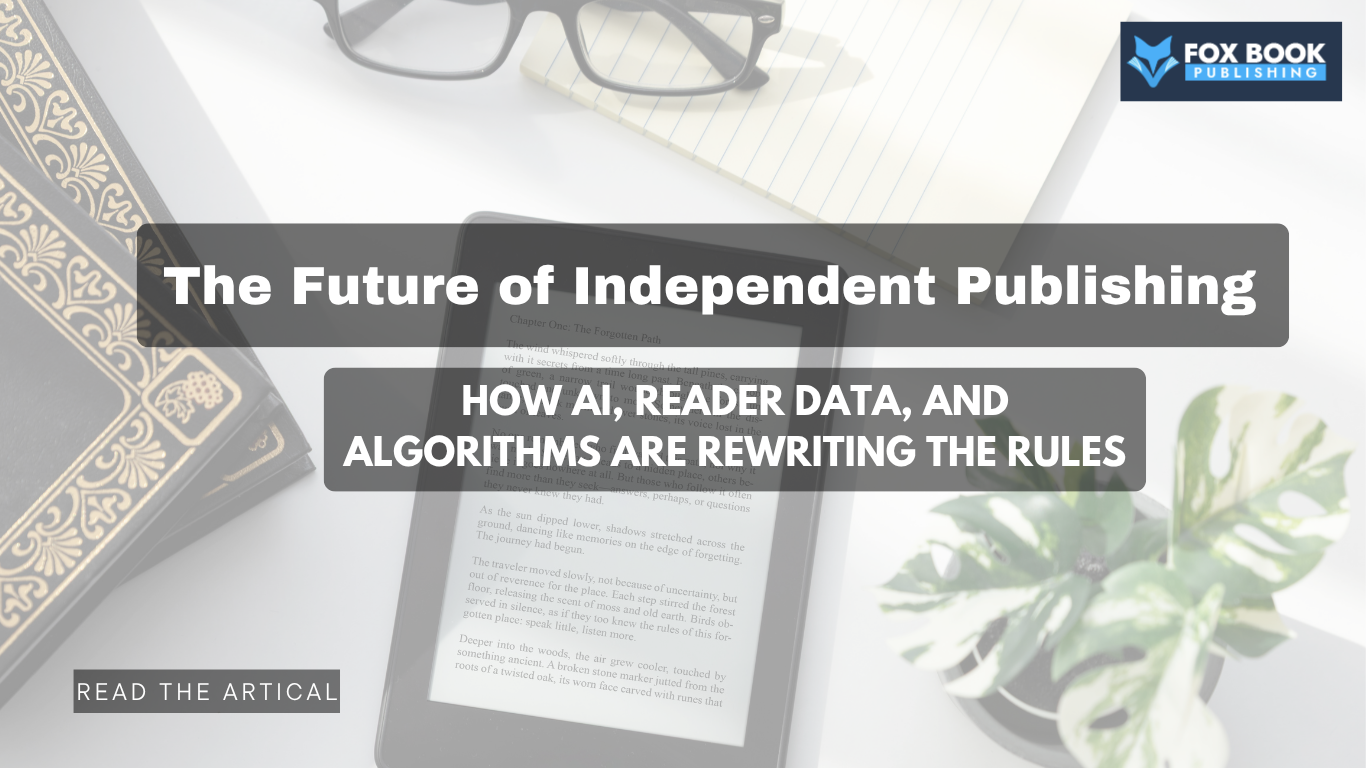Ten years ago, independent publishing was about beating the gatekeepers.
Today, it’s about understanding the machines that replaced them.
Algorithms, data dashboards, and AI tools now decide which books surface, how they’re priced, and who sees them first. The author who learns to read those signals doesn’t just publish — they compete.
1 From Creativity to Computation
Self-publishing used to reward persistence: write well, upload, promote. Now it rewards precision. Amazon’s recommendation engine looks at click-through rates, read-through percentages, and conversion consistency long before it looks at genre.
A book that converts well in its first week tells the system: “Show me more.”
That’s the new handshake between writer and algorithm.
2 Data Is the New Editorial Opinion
Traditional publishers relied on editors’ instincts; independent authors rely on dashboards. KDP reports, Book Report, and Author Central now act as editorial boards. They reveal which cover color or subtitle actually sells — and they don’t flatter egos.
Authors willing to test, track, and adjust outperform those clinging to artistic purity. The modern creative isn’t giving up art; they’re validating it with numbers.
3 AI as the Invisible Assistant
Artificial intelligence won’t replace authors, but it’s already replacing inefficiency.
Writers use GPT-based outlines, title testers, keyword tools, and even A/B copy generators. Designers rely on AI mock-ups to preview hundreds of cover combinations before hiring illustrators.
The advantage isn’t automation — it’s acceleration. What took months of guesswork now takes days of iteration.
4 Reader Behavior as Market Intelligence
Every scroll, highlight, and abandoned sample on Kindle is feedback.
When aggregated, it shows where readers stop reading, which topics cause drop-offs, and what tone holds attention. Amazon quietly rewards books that keep readers turning pages. Retention is the new review.
Savvy authors treat those analytics like product managers studying user engagement.
5 The Decline of Genre Walls
Algorithms don’t respect genre traditions; they follow patterns of consumption.
A reader who finishes a memoir about burnout might next be shown a productivity guide or even a novel with similar emotional rhythm.
Independent publishing is entering its “playlist era,” where stories flow by mood rather than label. Authors who understand emotional clustering will adapt faster than those who write strictly for shelves that no longer exist.
6 Micro-Publishers and Hybrid Models
The next decade belongs to small publishing houses that think like tech startups.
They use shared data pools, cooperative marketing budgets, and AI-based editing workflows. Instead of advances, they offer analytics dashboards and profit sharing.
The distinction between “indie author” and “boutique publisher” is fading — both are now agile content businesses.
7 Ethics and Authenticity
Technology scales efficiency, but readers still buy trust. The backlash against AI-generated filler books shows that authenticity isn’t optional.
Readers will tolerate AI assistance, not AI impersonation. Transparent creators who disclose their process will thrive; those hiding shortcuts will vanish behind one-star reviews.
8 A New Literacy for Authors
To survive, authors must learn algorithmic literacy: how search intent, metadata, and behavior loops intersect. It’s the equivalent of knowing grammar in the 21st-century publishing language.
Those who understand how machines read humans will always reach more humans.
FoxBookPublishing Support and Free Consultancy
Independent publishing is no longer guesswork — it’s a data-driven craft.
FoxBookPublishing helps authors bridge creativity and analytics with services covering niche validation, book formatting, cover design, metadata optimization, Amazon publishing setup, and strategic launch + post-launch marketing.
Book a free discovery call to discuss your publishing roadmap or choose a paid consultancy session for in-depth strategy and implementation.
Start your next-generation author journey at FoxBookPublishing.com.

